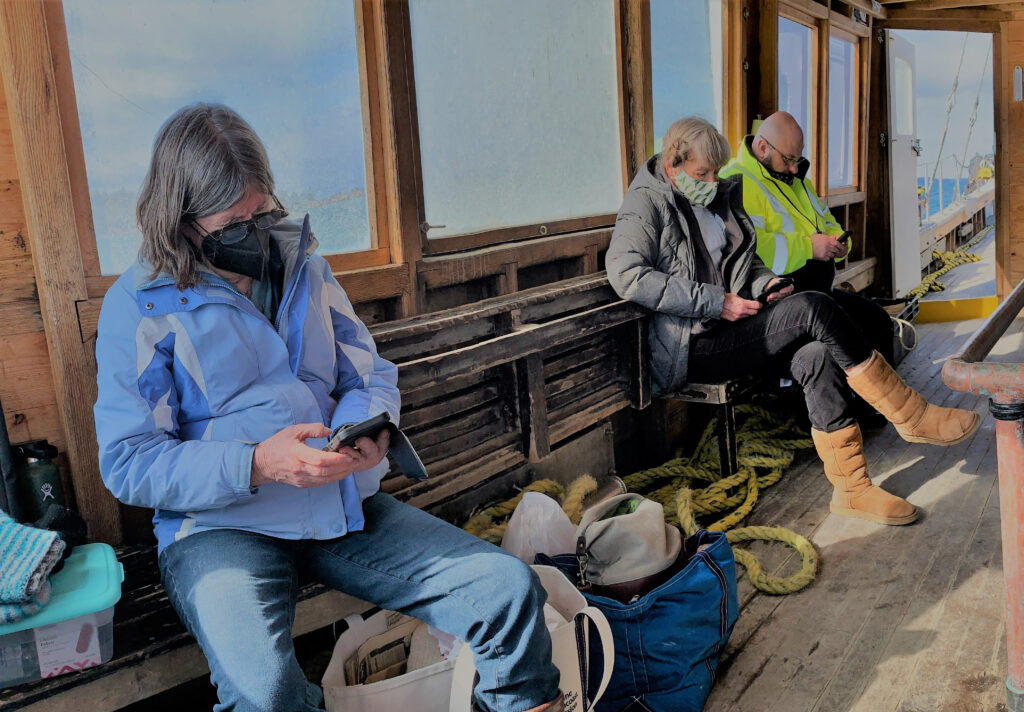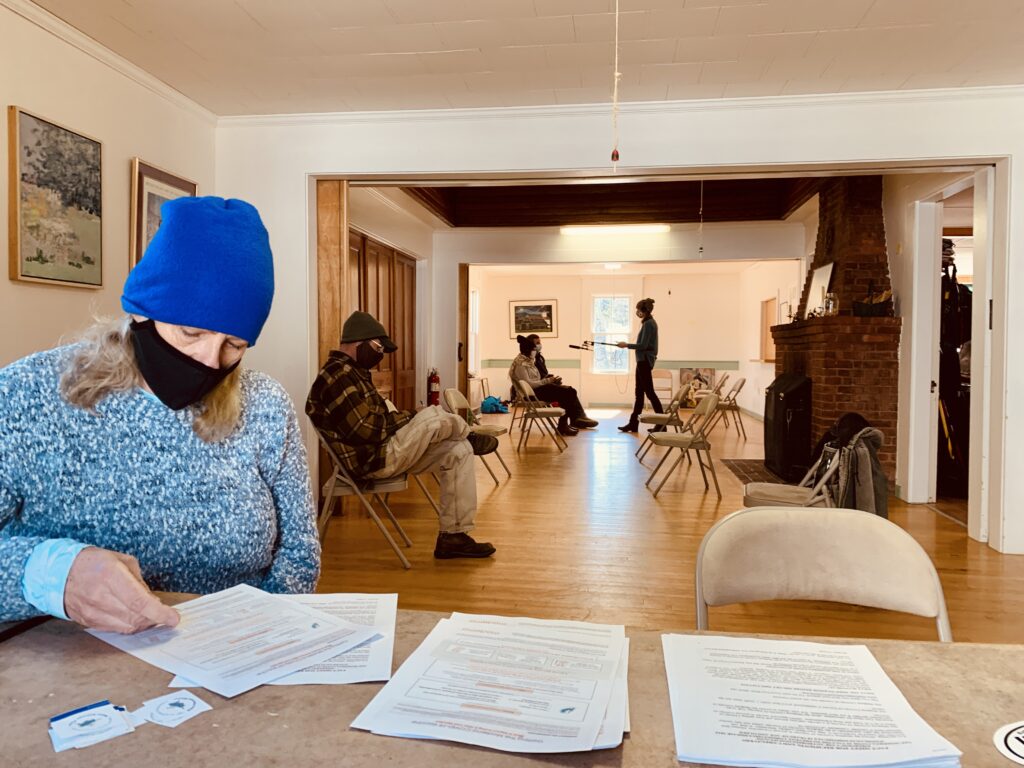For Sharon Daley, RN, telemedicine enables everything she does for the Mission’s Island Health program. From scheduling and coordinating care, lab draws, and flu vaccines to meeting with the eldercare partner network and holding her own patient appointments, connecting virtually is essential. “It allows for a wide range of health services, including primary care, medical specialties, behavioral health, and substance abuse,” she says.

Islanders can stay in their communities obtain medical services and stay in touch with loved ones, which is something everyone deserves.
– Sharon Daley, Director of Island Health
While regions of Maine struggle for reliable internet connectivity, islands tend to fare better. “I think that’s why islanders responded so positively and quickly to telemedicine. It’s hard to get off the island for services,” remarked Sharon. “It’s not just a one-hour session with a provider. Islanders must factor in water crossings by mail boats or ferries as well as additional commuting by vehicle. During this time of year, weather affects boat schedules, which in turn means canceling and rescheduling health appointments.” With a decrease in staffing at many provider sites, it takes more time to rebook those appointments.
A recent grant award from the Celia Lipton Farris and Victor W. Farris Foundation will help Sharon and the Mission diminish those challenges. The Farris Foundation supports projects designed to enable people to help themselves lead successful, inspired, and fulfilling lives. Further, these grants focus on supporting projects that stimulate innovation, strengthen individuals and families, and can demonstrate a sustainable impact.

Sharon explained, “The Farris Foundation grant gives us the ability to furnish islanders with iPads. In addition to placing the technology, it also means providing education on how to use it.”

The option to meet virtually will allow essential health services. For island residents, technology also increases connectivity to family, friends, and ordering supplies like food. This means decreasing isolation. If there’s an older adult in a home, they can connect to family members, friends, and the world off-island. This alleviates the sense of remoteness and improves cognitive and emotional health.
In addition, Sharon’s team is identifying people to use iPads for medical visits, counseling, and to attend meetings like AA. “Telemedicine and technology exists for people to access services they would otherwise obtain on the mainland. It means islanders can stay in their communities obtain medical services and stay in touch with loved ones, which is something everyone deserves.”
For a window into Sharon’s work and the Island Health program, watch In Our Words, presented by Walgreen’s Studios.
To learn more about older islanders access to health services, visit Hannah Pingree’s 2016 documentary, Aging On An Island – Voices from North Haven, Maine.
